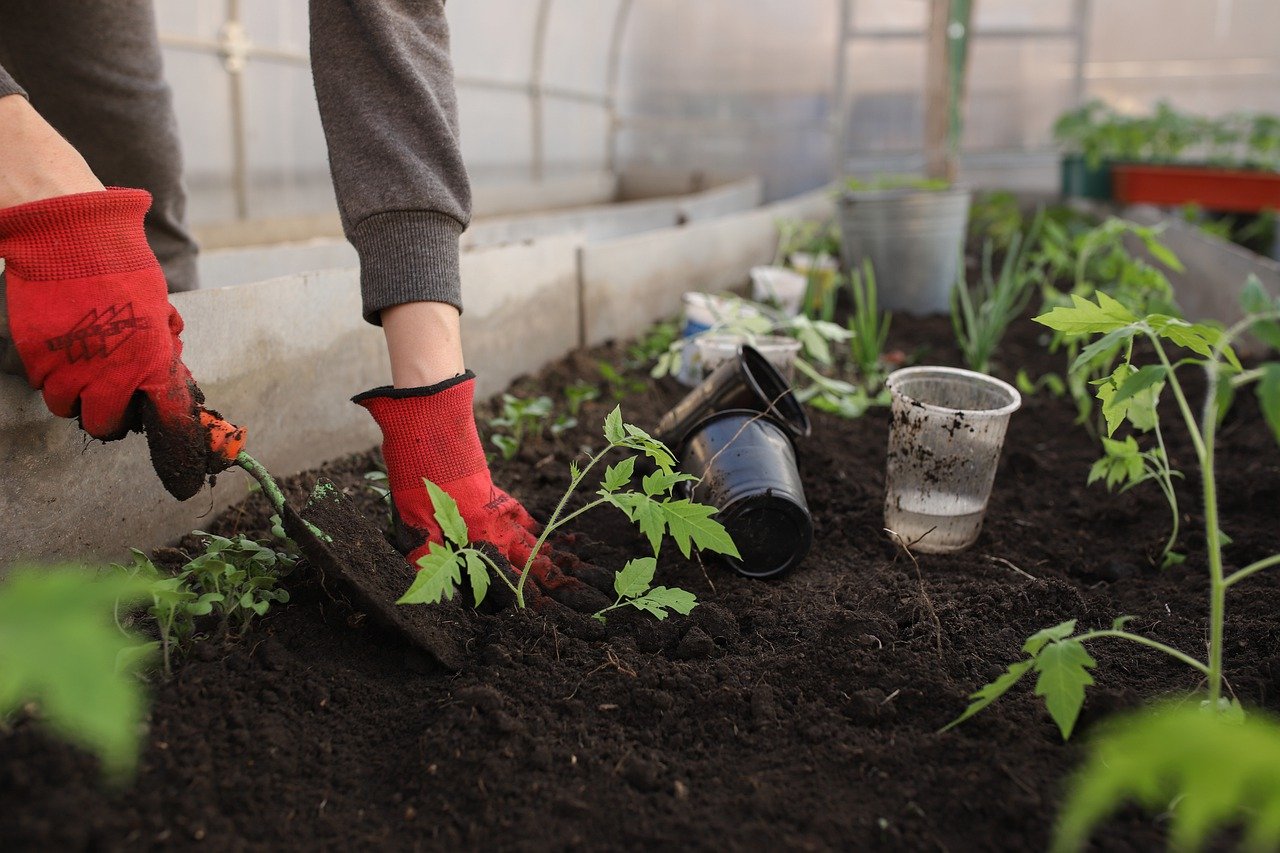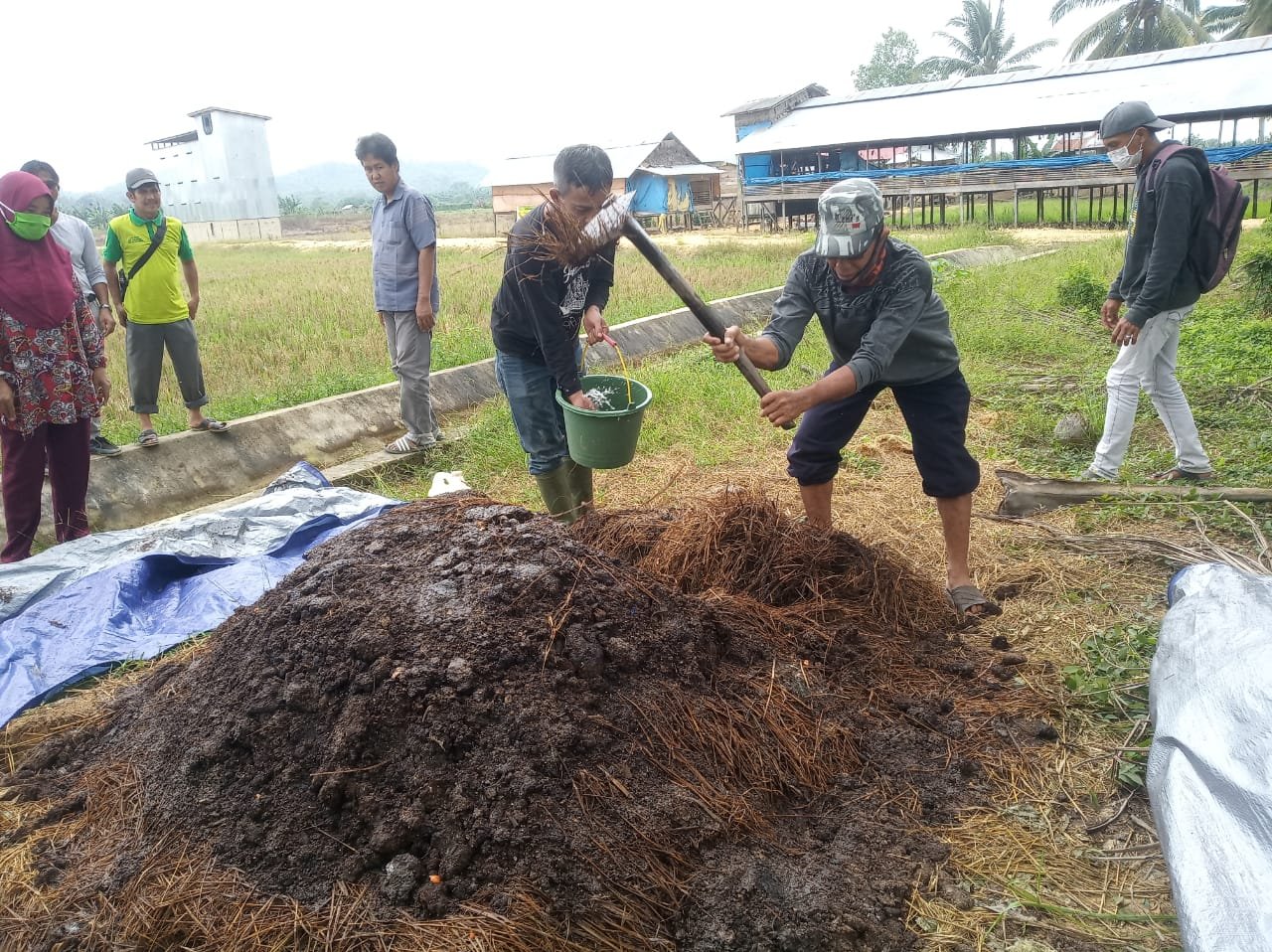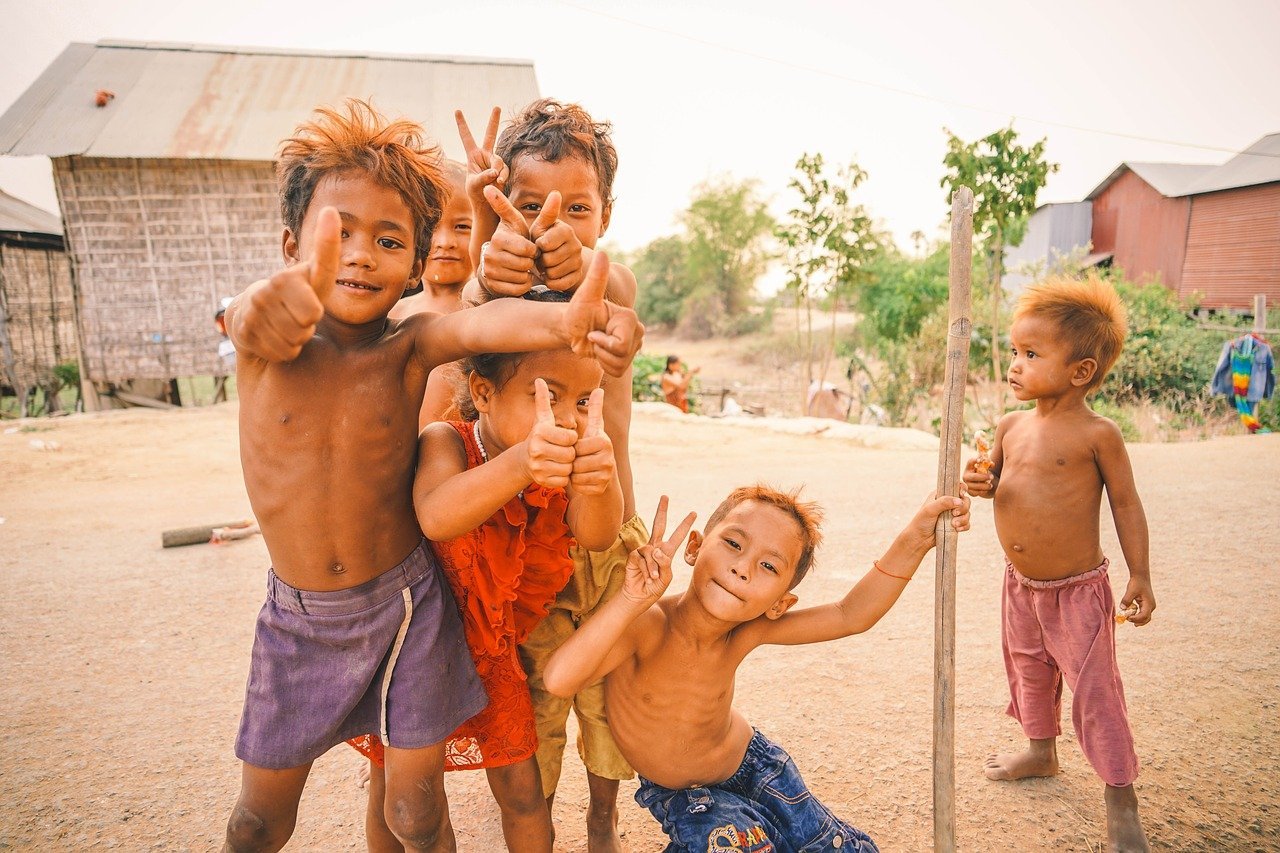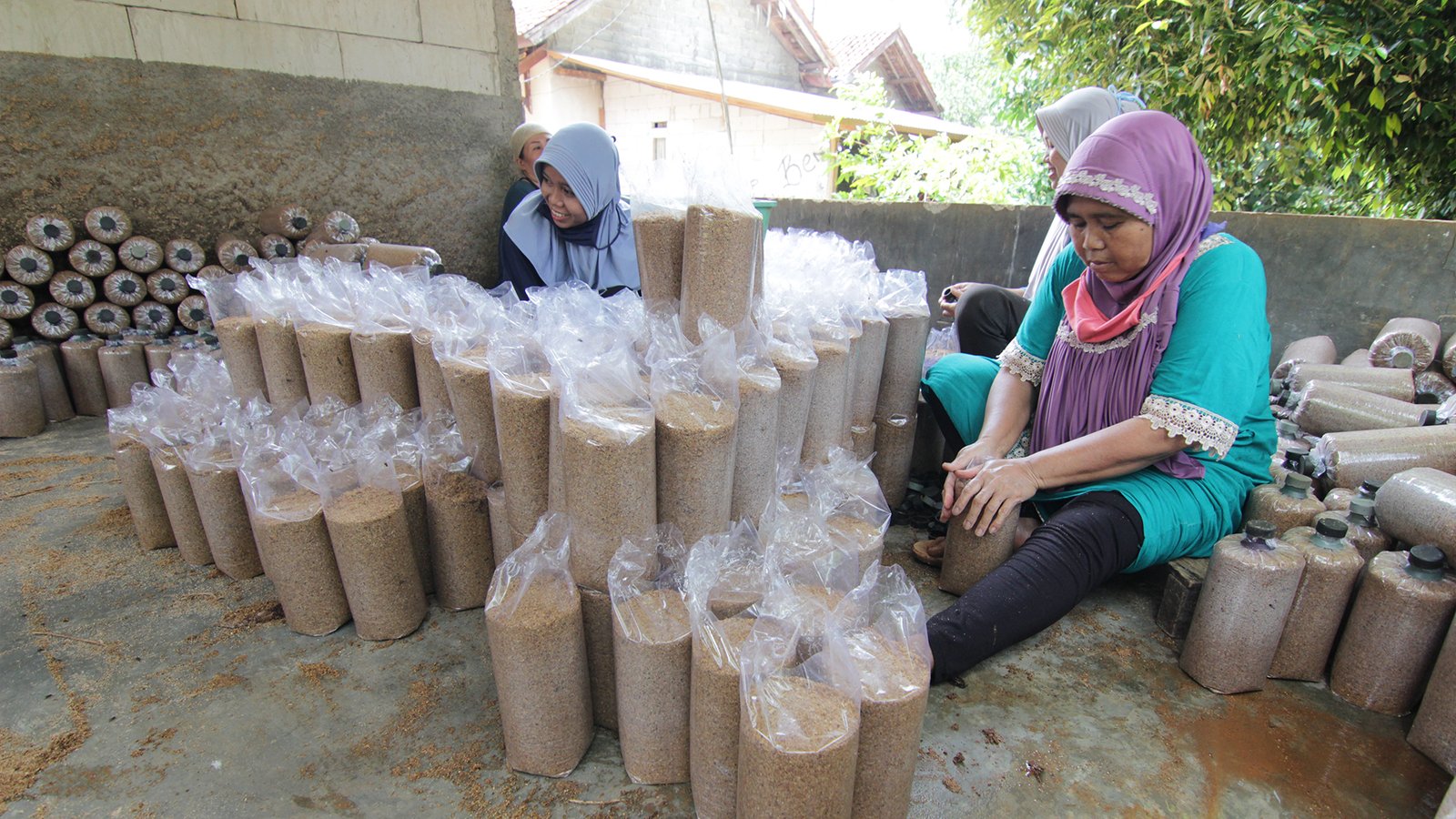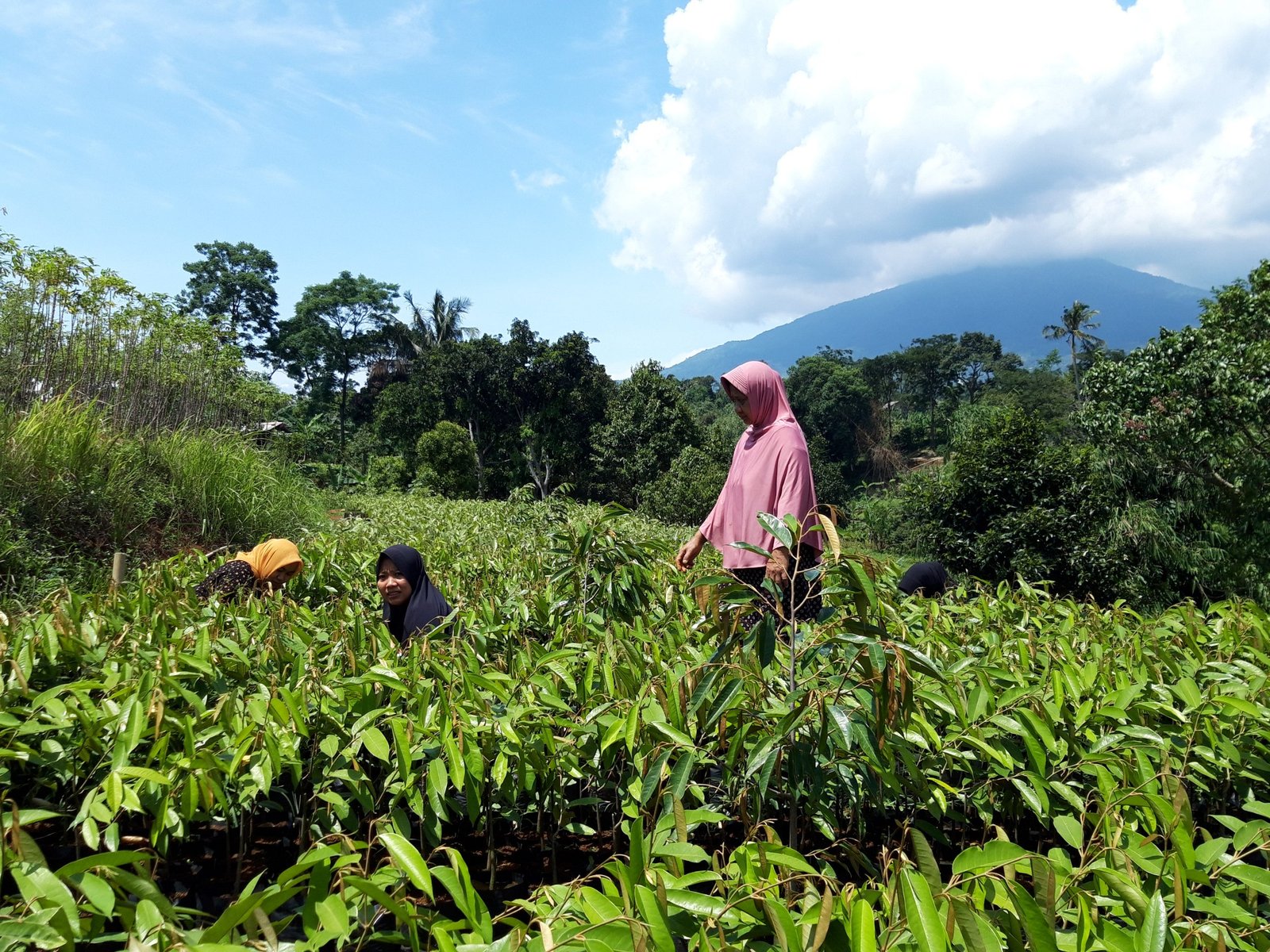The COVID-19 pandemic has had a profound economic and social recession, both nationally and globally. However, this impact is not fully felt by indigenous peoples, one of which is the indigenous people of Kasepuhan Ciptagelar who always maintain the balance of nature.
The Board of Bina Swadaya Foundation, Eri Trinurini Adhi said the COVID-19 pandemic has encouraged the government and all stakeholders including the community to reflect on the direction of development with new approaches.
“Indigenous peoples’ resilience is an answer to the impact and recovery of the economic crisis, PSPK-UGM with support from Bina Swadaya and Ford Foundation conducted a background study on the pattern of vulnerability and resilience of indigenous peoples, especially during the COVID-19 pandemic,” explained Eri when opening the Wisama Hijau Talk: Build Forward Better with the theme “Vulnerability and Resilience of Indigenous Peoples in Facing the Impact of the COVID-19 Pandemic” which was held by online, Thursday (10/14/21).
He said this study is intended as input material in formulating and implementing preparedness strategies and roadmaps for equitable and sustainable economic recovery from the COVID-19 crisis.
Three groups of indigenous peoples became case studies to map their vulnerability and resilience in managing the economy and dealing with the impact of COVID-19. They are the indigenous people of Senama Grandma in Riau, the indigenous people of Urug with descriptions of the indigenous people of Ciptagelar in West Java, and the indigenous people of Samin (Sedulur Sikep) in Central Java. Studies in the three indigenous communities are almost complete so they need to be disseminated through seminars.
The seminar aims to obtain various criticisms and suggestions for finalizing the report. The seminar itself presented research reports, discussions by experts, and discussions by indigenous observers.
“In the roadmap and action strategy, we have a target group that has been carried out field studies that become affected groups consisting of indigenous communities, MSME groups and women in the informal sector, farmer groups, disabled communities, community organizations, and marginalized groups both in cities and villages,” said Poppy Ismalia as the Chair of the Preparation of the Roadmap for Equitable and Sustainable Economic Recovery of the Bina Swadaya Foundation.
Furthermore, Poppy explained, in the work of preparing road maps and action strategies, before entering the draft road map and action strategy, literature studies and field studies were carried out to explore conditions and situations objectively, how the groups targeted for analysis in this study were affected by COVID-19 and how the response and resilience carried out by these groups could be a lesson.
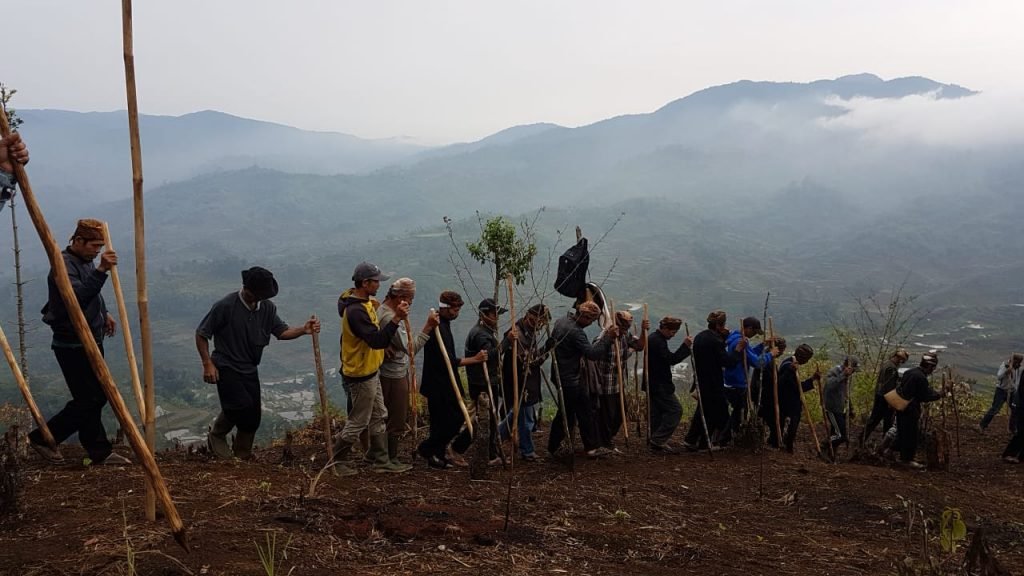
Based on the results of a field study of indigenous peoples conducted by the Head of the Center for Rural and Regional Studies (PSPK) Universitas Gadjah Mada (UGM), Dr. Bambang Hudayana, M.A., said that his party conducted field studies in three indigenous communities to see the diversity of impacts.
“Based on the roadmap from our field studies, the empowerment of indigenous peoples should be based on participation, utilization of local assets, as well as preservation of local resources and local wisdom,” said Bambang.
He further revealed that it is important to increase literacy about local knowledge related to resilience to become the strength of indigenous peoples in the development of sustainable life. According to him, it is necessary to increase government recognition of indigenous peoples’ rights, such as land, sustainable agriculture, and local economic management.
“Increasing the role of NGOs and donor agencies in facilitating indigenous peoples’ initiatives in increasing resilience, both in the economic and health sectors,” he added.
Meanwhile, Umi Kusumawati, one of the residents of Kasepuhan Ciptagelar on the same occasion revealed that the indigenous people of Kasepuhan Ciptagelar still uphold the concept of natural balance and maintaining customs. Although the indigenous people of Kasepuhan Ciptagelar live in ancestral traditions, local people also follow technological developments.
According to him, during the COVID-19 pandemic, there was not a single case of transmission or infection of COVID-19 that occurred in the people of Kasepuhan Ciptagelar. Umi added that the Ciptagelar community does not close themselves or does not interact with the community from outside.
“As I said, we maintain the balance of nature through the customs and traditions that exist in Kasepuhan Ciptagelar itself. We also appeal to anyone who comes to Ciptagelar to be wary of himself for anything that might endanger the community here. Alhamdullilah, during the two years of the pandemic, although people who came to Ciptagelar could not be contained, there were no records of cases of people exposed to COVID-19,” said Umi.
Equator researcher, a lecturer at Ibnu Khaldun University, Bogor, Bahagia, stated that the community has applied the concept of resilience independently. The community had participated to implement a resilience system before the COVID-19 pandemic occurred.
“This means that the cultural system was built before the COVID-19 outbreak. This condition does not only occur in indigenous communities but most Indonesian people who pass on the tradition of gotong-royong. However, gradually this concept degraded. This means that local wisdom can no longer be a model and a model,” he said.
Bahagia further gave an example, when the COVID-19 pandemic occurred, Indonesia experienced a food crisis. In fact, according to him, if we return to traditional procedures or the concept of local wisdom, people will never lack food.
Regarding the COVID-19 pandemic which has an impact on food security, Umi said that the Ciptagelar people’s belief in nature and its creator is also applied in the agricultural system. According to him, the farming system in fields and rice fields never uses chemical fertilizers, they only rely on organic fertilizers and follow natural patterns.
Umi also stated that the people of Kasepuhan Ciptagelar do not know about famine, plague, or pests because they always maintain the balance of nature. He said that the indigenous people of Kasepuhan Ciptagelar still maintain the tradition of saving crops. To grow rice, people in Kasepuhan Ciptagelar still maintain the traditional way.
The rice harvest for the people of Ciptagelar only takes place once a year, but there is never a shortage of rice. For the indigenous people of Kasepuhan Ciptagelar, rice is not just a food commodity for daily consumption, but as a symbol of life. (Nino/Astri)

